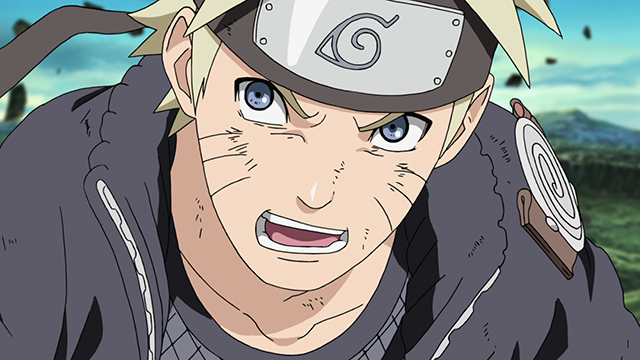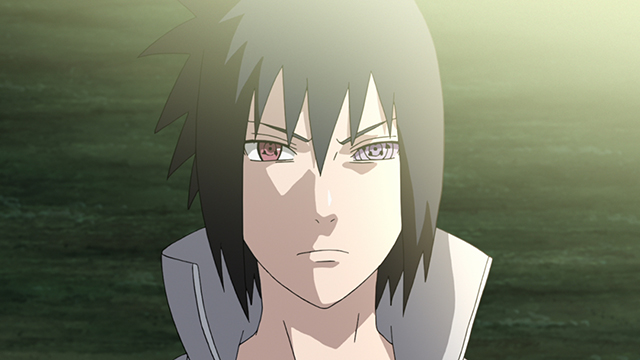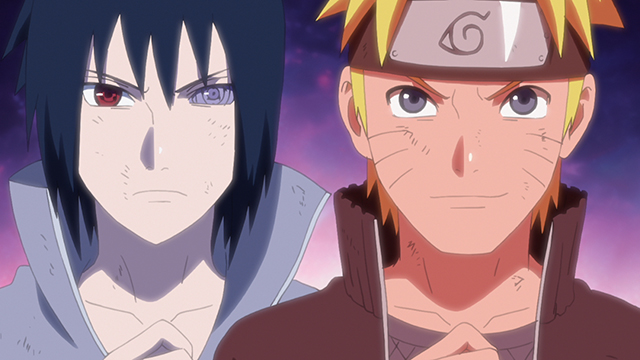FEATURE: 15 Years Ago, Naruto Shippuden Showed Us The Pain Of Growing Up
15 years ago, Naruto Shippuden premiered, returning fans to the titular Uzumaki and his quest to become Hokage of the Hidden Leaf Village. Much like Dragon Ball Z’s relationship to Dragon Ball, it doesn’t reflect a new manga title being adapted but rather a time jump in the story, one that allows Shippuden to serve as a sequel series to Naruto, a continuation and a place for new fans to jump in. Most importantly, its narrative is kind of an answer to the themes set up in the original show. Shippuden is a reckoning of the past and an introduction to the pain of the future.
Notably, this arrives in a question regarding forgiveness. The backbone of the entire story is built on the relationship between Naruto and Sasuke, one that bubbles up in the opening episodes and eventually bursts as the two clash at the Valley of the End. Sasuke is the winner, throwing down his scarred headband as a refusal of the ninja way. When Shippuden debuts, Naruto and Team 7 are searching for their former teammate, only to find him resentful and defiant. Throughout the series, Sasuke openly, and often violently, refuses their attempts to reach out to him. Even the fact that he’s willing to join in the Fourth Ninja World War, standing alongside Naruto and Sakura in a real “the boys are back in town” moment, doesn’t solidify his reliability.

As such, the case slowly shifts from “Can Naruto forgive Sasuke?” to “Can Sasuke forgive Sasuke?” The answer to the first question is obvious — Naruto is usually more than ready to accept his old classmate/partner/rival back into the fold. Sasuke, on the other hand, carries a lifetime’s worth of shame, from the complicated events of his family’s past to his angst-ridden connection to his brother Itachi to the decisions he made in Naruto. Like many of us as we grew up, Sasuke spends a lot of Shippuden trying to both reconcile who he is and figure out who he wants to be.
Growing up is the second big theme of Shippuden, proving that the time jump wasn’t just to acclimate viewers to the ever-rising destructive powers of the characters. It gives them a chance to be mature enough to handle the stakes of a burgeoning adulthood. Naruto, if you started reading or watching as a child, is a series that one could very reasonably age along with. As such, the wide swathes of emotion felt by the leading cast in the first show become more pointed and exact in the second. Naruto’s loneliness and feelings of being misunderstood evolve into a teenager struggling to figure out exactly what it means to truly lead.

Shippuden has a poignancy that only time can grant us, with revelations that only time can make us fully recognize. Kakashi’s backstory in Shippuden, one full of aching loss, recalibrates his character, changing how we see his choices everywhere from the Land of Waves arc to his often confounding relationship with the brash Might Guy. It’s also something that we need the weight of the continuing conflict between Naruto and Sasuke to grasp. Like a parent telling you a story about their past in order to help you better comprehend your present, Kakashi’s life reverberates in a way that it wouldn’t have had we not come to see the disintegration of Naruto and Sasuke’s partnership.
However, this doesn’t prevent us from understanding all of it. A major area of contention among Naruto fans is the pardoning of Sasuke at the end, something that seems needless considering how dead-set Sasuke was at constantly being a nuisance. Kakashi’s reasoning is pretty simple — he’s Hokage and Naruto pleaded with him about it — but it still remains a kind of ethical gray area. The definitions of Good and Bad, presented to children as ultimately linear, often don’t seem that way when you’re an adult. You learn, you empathize, and you do your best to do what’s right even as the world around you seems irrational. Sasuke’s “punishment” is destined to mean a different thing to different people.
Finally, Shippuden is about how we grapple with the past, and how we, as people, are inherently molded into the history of the world and its systems. A look deeper into Naruto can almost be disturbing in that regard — a long lineage of young ninjas being drawn into the wars started by older ones. Being a ninja is presented as a status of relative nobility, but as many characters in Naruto discover, the end results are less than glamorous. They will fight because fighting is seemingly the only choice they have.

Even Sasuke’s desire to do away with the Kage results in another clash between himself and Naruto. He feels that they’ve been ineffective or, at worst, a detriment to them all. This time, however, he loses the fight, the culmination of the story about a young boy who experienced immense tragedy and grew up in a society often unequipped to help him confront it. He gives in, and by the final moments, when Naruto returns his scarred headband back to him, it isn’t just wrapping up Sasuke’s arc but the meaning of Shippuden as a whole.
Anime time skips and sequels often progress characters in ways that will help them solve their problems. They get stronger, they get smarter, they get more efficient, and when a threat of increased danger rears its head, they are capable enough to deal with it. Naruto Shippuden definitely provides that. But through its themes and how it treats Sasuke, it’s clear that in Naruto’s world, there is no clean resolution or final victory over the demons that haunt you. Your inner turmoil never goes away — you just learn how to deal with it in a way that steers you clear of ruination. And you come to wear the scar on your headband with pride.
Daniel Dockery is a Senior Staff Writer for Crunchyroll. Follow him on Twitter!
Do you love writing? Do you love anime? If you have an idea for a features story, pitch it to Crunchyroll Features.
from Latest in Anime News by Crunchyroll! https://ift.tt/hPwL8OR


Comments
Post a Comment